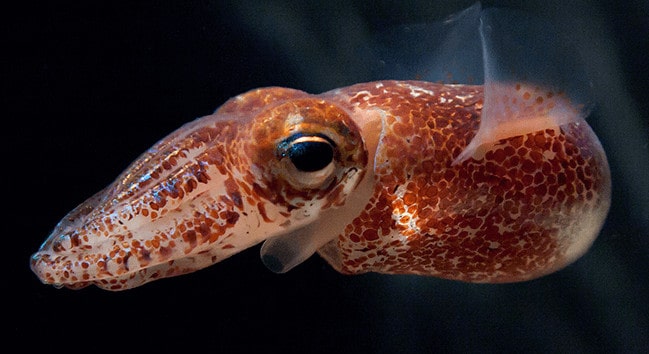The humble Hawaiian bobtail squid is helping to build the University of Hawaiʻi’s capacity in the hot field of microbiome research. A microbiome is a community of microorganisms. Researchers at UH Mānoa’s Kewalo Marine Laboratory are studying the simple squid and its interactions with a single bioluminescent bacterium (vibrio fisheri) that grows inside of it to shed light on the incredibly more complex human microbiome.
“We use the squid-vibrio system as a very simple model and the bacteria, this particular luminous bacterium that makes light for the squid associates with the animal cells in exactly the same way as our bacteria associate with our cells,” explains Margaret McFall-Ngai, director of the UH Mānoa’s Pacific Biosciences Research Center.
Pacific Biosciences Research Center Researcher Ned Ruby adds, “And we hope that by understanding how it works in a simple model system like ours or like several others that are being studied out there, we’ll be able to understand how to maintain health of humans and how they maintain their beneficial associations.”
Microbiome research is so important that the White House announced a National Microbiome Initiative in 2016 to understand, protect and restore healthy microbiome function, with specific implications for human health, environmental sustainability and energy and food production.

